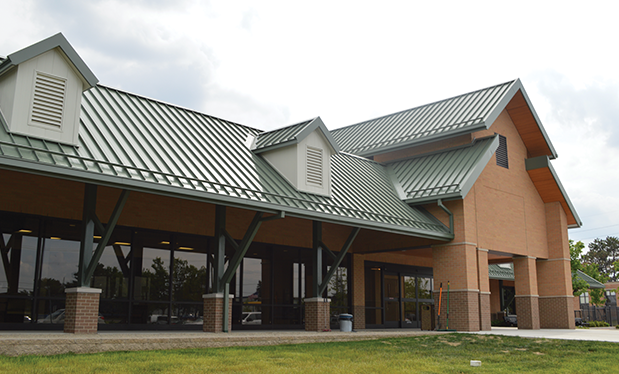In previous Professional Roofing articles, I discussed evaluating sales and marketing, generating leads, and how sales and marketing can work together for success. But how can your roofing contracting company accomplish all these marketing tasks while staying within your marketing budget? There are a number of ways roofing contractors have realized success in their sales and marketing efforts while maintaining a relatively modest budget. It is all about creatively looking at your resources and using them for success.
Reviewing resources
When reviewing your resources and needs for a strong sales and marketing program, taking time to evaluate your current marketing efforts is essential. What already is in place? What talent already is in your organization that you may not be using to its full potential? What collateral material, print and digital, already have been developed and are they succeeding? Many times, companies spend a large amount of time recreating a marketing program that already may be good but just needs updating.
When evaluating resources, important areas to review include technology, networking groups and associations, vendor support, continuing education, and your marketing budget and people.
Technology
Technology should be an important part of your business—especially your sales and marketing functions. It can seem intimidating at first, but keep in mind technology has progressed to the point it's intuitive and easy to learn. It can help with organization, maintaining the records of your customers and jobs while overall improving processes within your company.
In addition, technology sends a strong branding message, showing customers a company understands and uses technology for efficient productivity and better customer service. Customers have more confidence in a contractor who presents a professional estimate; has an organized production schedule; and can quickly and easily communicate before, during and after a job.
A good, high-speed internet connection is critical. Many of the more reasonably priced technology solutions are cloud-based. This offers freedom and flexibility for your team to access information from any device anywhere, and the technology typically offers multiple solutions that fit within a company's daily processes. Using a cloud-based customer relationship management (CRM) or estimating platform also offers the benefit of not having to maintain large levels of storage or servers. It is critical to confirm your company owns your data and it is being backed up regularly.
There are platforms available that have been designed and built specifically for roofing contractors. Some are quite robust, and others are basic. Many will offer a free 30-day trial so you can see whether the platform has the features and functionality to meet your business needs. Software for roofing in particular will span business needs including estimating, project management, CRM, lead tracking and marketing. Seldom does one software do everything, so it is important to take the time to determine which features are most important for your company so you can choose which software will work best.
Be sure to ask the following questions:
- Are there annual licensing fees?
- How many users can be on the system at one time?
- What is the process for storage and backup of data?
- Does the program integrate with other technology you may be using, such as aerial measurement reports?
- If you decide to terminate the program, are there cancellation fees? And who owns the data?
- Is customer support available seven days a week?
- Is on-site training available?
- Does the software integrate with distribution or manufacturing?
As you look specifically at marketing, the No. 1 marketing technology is a website. This may seem obvious, but many contractors do not have websites or have outdated websites. Your company's website needs to provide enough information about your company in such a way potential customers will take action and request an estimate for their jobs. A customer wants to feel confident your roofing company is experienced and professional, and your company's website offers that first impression for a customer.
Your website should be dynamic, meaning the content is fresh and always current. When building or updating the site, be sure to include sections that provide short articles and additional information your customers will find interesting. Post your press releases and other news regularly. A good website will have a prominent button or link on every page so a visitor can instantly request an estimate. Ask website visitors to complete a form that captures their contact information (name, address, phone number and email address), and also use the opportunity to gather some basic qualifying information.
Finding a good website developer can be challenging, but there are a lot of resources currently available. Everything from do-it-yourself to leasing a website to finding a good internet marketing agency to build and host the site are all available options. Before hiring a company to update or develop your company website, take the time to look at other websites to see what you like. Often, the name of the company that developed a website will be on the site. Be sure to gather information beforehand to save you time and money when you start working with a web development company.
Lastly, look internally first. Many people know how to create websites, and there may be someone already working for you who would love to work on a new website and more important, continually update and grow the site.
When incorporating any technology and especially web development, take the time to plan, research and evaluate. Talk to other contractors through your associations or networks and see what has worked for them. Look at online reviews and take advantage of free trials that will give you time to explore and understand the technology.
For other marketing software such as lead tracking and CRM, keep in mind there could be a large time commitment to implement the new technology. It may even have a cultural effect on the company as processes will need to be updated, personnel trained and data uploaded.
It is not easy to change software, so creating a relationship with the software provider upfront ensures there is a high degree of comfort and confidence when initiating the new technology and processes into your company. In the end, it will save time and money. Technology substantially can increase productivity and profitability, but there always is a learning curve.
Networking groups and associations
As with technology, one of the tricks to creatively resourcing marketing tools and ideas is to engage with industry associations and groups. The right groups can provide much more than technical information for your business—they can provide marketing resources and education. If you aren't already a member of your local, regional and/or national roofing contractor association(s), you need to join today. It is one of the best investments you will make with your marketing budget.
After joining, familiarize yourself with what your association offers and take advantage of the opportunities. Most associations offer training and resources for all parts of a roofing business. Many will provide flyers and informative articles you can use in your marketing efforts. You'll also be able to promote the fact you are a member, which instills confidence in customers. Be sure to ask whether any vendors offer discount programs for association members; you potentially can save hundreds or thousands of dollars per year.
Beyond just taking advantage of your association's services and annual convention, ask whether there are regular quarterly meetings you can attend or committees on which you (or someone from your company) can serve. This allows you to build relationships with other roofing contractors in your state or around the country. Whether you have a problem with a job or are looking for the best estimating software for your business, you've established a network of resources that are just a telephone call away.
Vendor support
Similar to associations, roofing industry vendors can supply marketing tools at a great value or even for free. Manufacturers and distributors have all types of business development programs for contractors. Many are based on volume of materials installed, but there also are other great programs that have been developed to help contractors grow professionally and build successful businesses.
In fact, service and product providers in the industry have a vested interest in helping you grow your sales and marketing programs. When you are successful, they are successful. Some questions you should ask of service providers include the following:
- How do your volume- or points-based contractor programs work?
- Do you provide support for writing articles, press releases or case studies?
- Do you provide support for developing brochures or websites?
- Do you have programs that allow contractors to buy marketing materials (lawn signs, banners, door hangers, etc.) at discounted rates?
- Are there continuing educational opportunities and/or marketing training available?
- How do you integrate with technology providers, and how can that work for our company?
Loyalty programs can be an important part of your marketing budget. Many contractors are able to partner with their vendors to create plans that are beneficial for all parties. Every year, contractors can save thousands of dollars by using loyalty program benefits. Many programs offer cooperative advertising funds that help defray advertising costs, and others will have marketing materials ready so you can just add your logo.
Continuing education
One of the most important things you can do for your business success is to take advantage of continuing educational opportunities offered by associations and vendors in the industry. Some states require a minimum number of hours of continuing education in different areas to maintain a license in good standing. Many training programs and classes are offered free of charge, often in conjunction with annual conventions. There also are a large number of opportunities to take advantage of online education.
In addition to maintaining compliance with state requirements, education allows you to stay on top of what is new in the industry. Many groups now are offering ongoing classes, seminars and online training for sales and marketing. Again, it is as important to the vendors as it is to the contractors to produce mutual success. All types of vendors, including technology, distribution, manufacturers and business services, offer continuing education. They have the resources for obtaining marketing specialists to lead these courses and offer them locally, regionally, nationally and online.
For example, NRCA offers weekly webinars, and many address sales and marketing issues. The webinars are free for members, and they are archived so you can use them for internal employee training. NRCA also offers consulting benefits, collateral and research that can form the foundation of your sales and marketing plans for no additional charge beyond the cost of membership.
Marketing budget
In addition to industry resources, you probably know you will need to budget money for marketing, but how much? Industry averages show most businesses allocate about 3 percent of gross revenues for ongoing, routine marketing. If your company is trying to break into a new market area or focus on growing a particular service, the percent can run as high as 8 to 10 percent.
Once you know how much of your budget will be allocated to marketing efforts, you will need to decide how to allocate your funds. Categories should include the following:
- Advertising (TV, radio, online)
- SEO (search engine optimization) and website management
- Printing and collateral material production (truck magnets, door hangers, etc.)
- Memberships (associations and civic groups)
- Homeowner shows (exhibit space and graphics production)
- Subscriptions (email software, services)
- Freelancers (website creation/maintenance, graphic design, writing)
- Technology costs (website, social media, CRM)
It's not as simple as splitting your budget evenly across these categories. The areas that will take more resources are advertising, printing and collateral material production, or freelancers.
Advertising depends on your business model. For example, residential contractors may spend a larger amount on television or radio advertising and not worry as much about other marketing areas. Whatever type of advertising you do, be sure to ask for all the "value adds" available. This may include online exposure, event sponsorship, a radio co-op or special placement. Every roofing business is different, but by evaluating and having an idea of what you want and asking questions, it is possible to get a large amount of additional value built into your budget.
When developing or revising a budget, consider hiring a consultant to help establish a marketing plan and budget for your business. It will be an extra cost but can be well worth the expense. Be sure the consultant understands the industry and your local market. This is another area where it is good to talk to your vendors and ask for referrals. They may even help subsidize the expense.
Once a plan is in place, it can be managed by a marketing coordinator. This is an ideal position for a recent college graduate or someone with just a few years' experience. This person also could potentially update your company's website. With the right person in place, some of the money budgeted for a freelancer could possibly be redirected into the salary for a full- or part-time position. If there are any colleges or universities nearby, you may be able to use an intern a few hours a week to help your marketing efforts.
People
Employees are your best resource. Employees who have sales and marketing talent often are overlooked because they may be in accounting or production positions. It is well worth the time to look at the talent already working every day in your business. Your employees believe in your company, and it may surprise you to find some are building websites or writing articles during their nonwork hours.
Share your plan
As your final marketing budget is developed, be sure to share what you are doing with your leadership team and key employees. They may see new opportunities or have feedback about the plan. Also, share your marketing efforts with trusted vendors to be sure you are taking advantage of every opportunity for success.
Heidi J. Ellsworth is owner of HJE Consulting Group, Camp Sherman, Ore.



